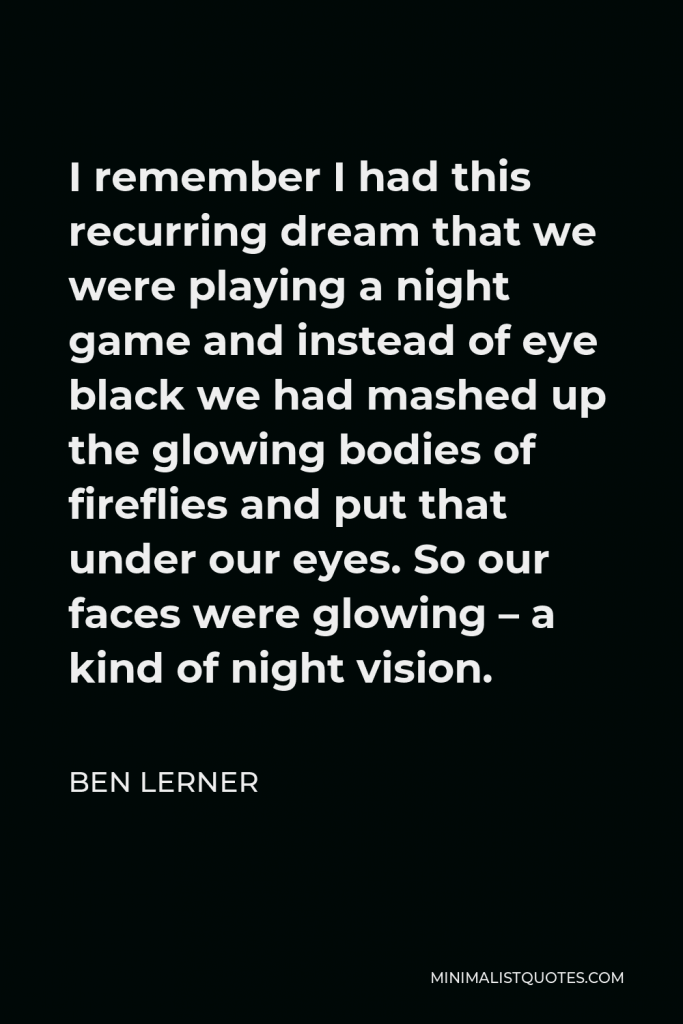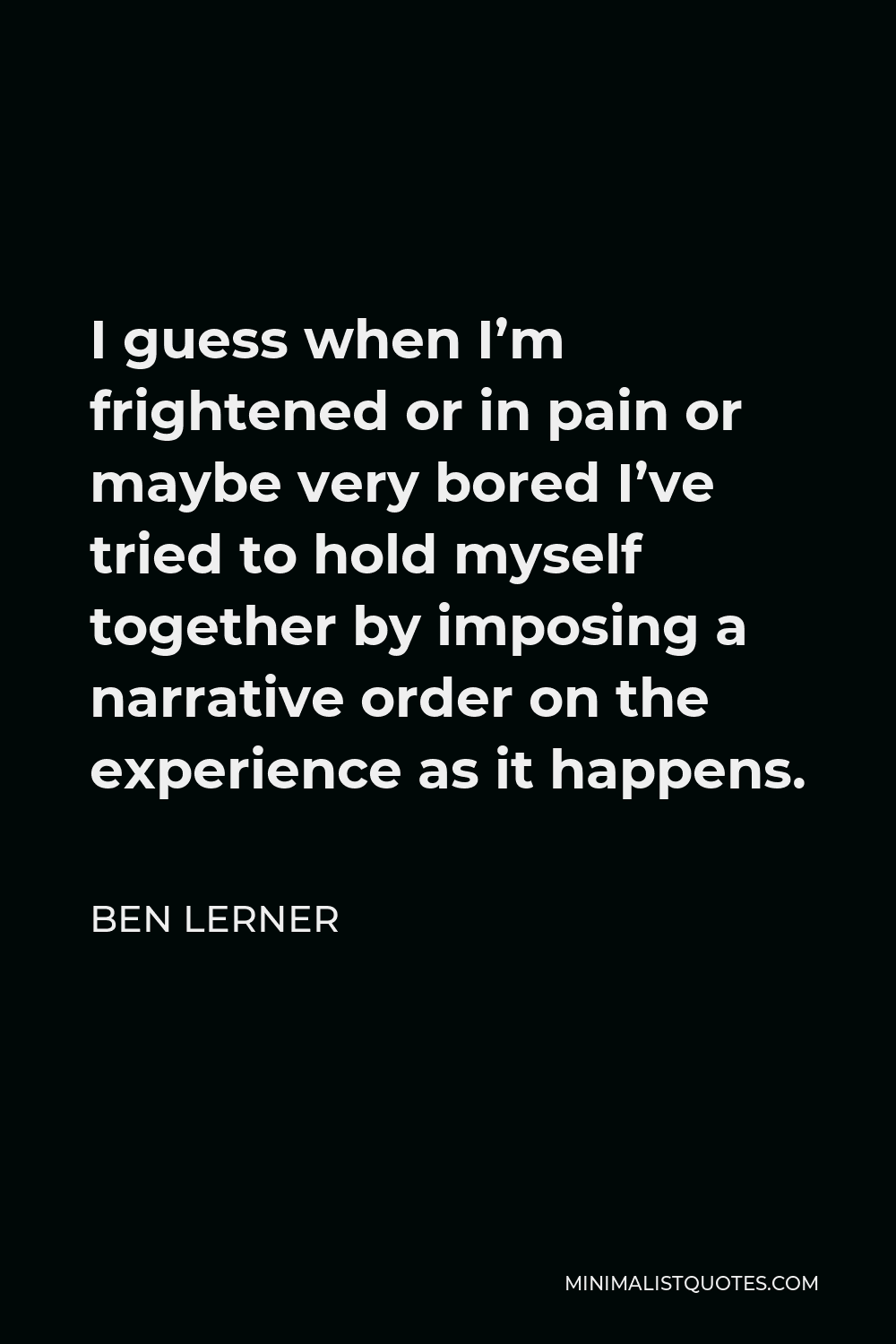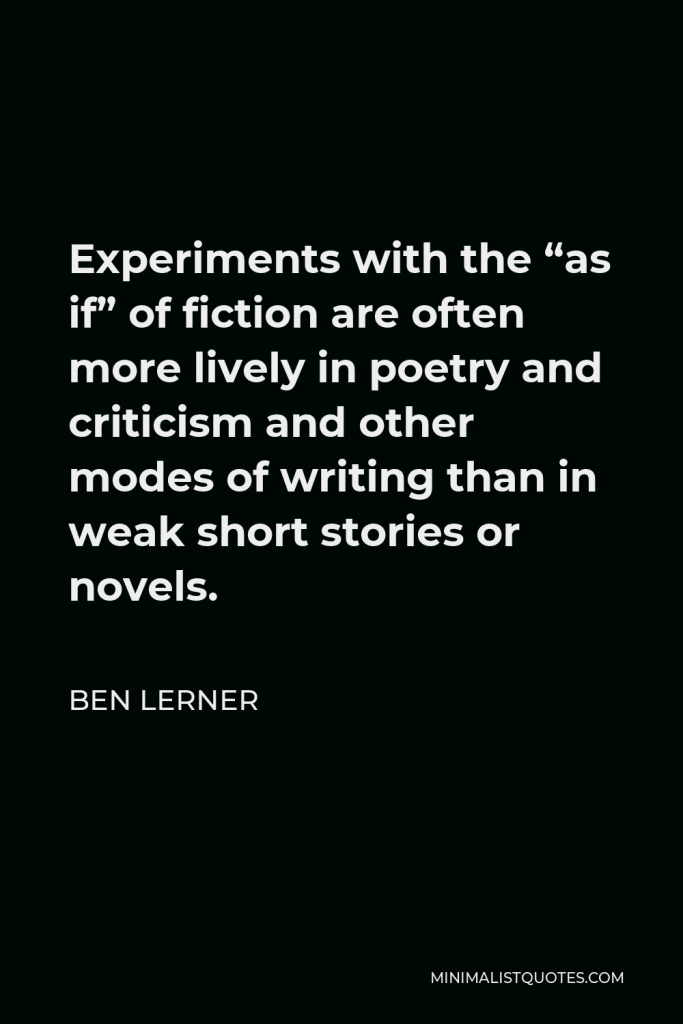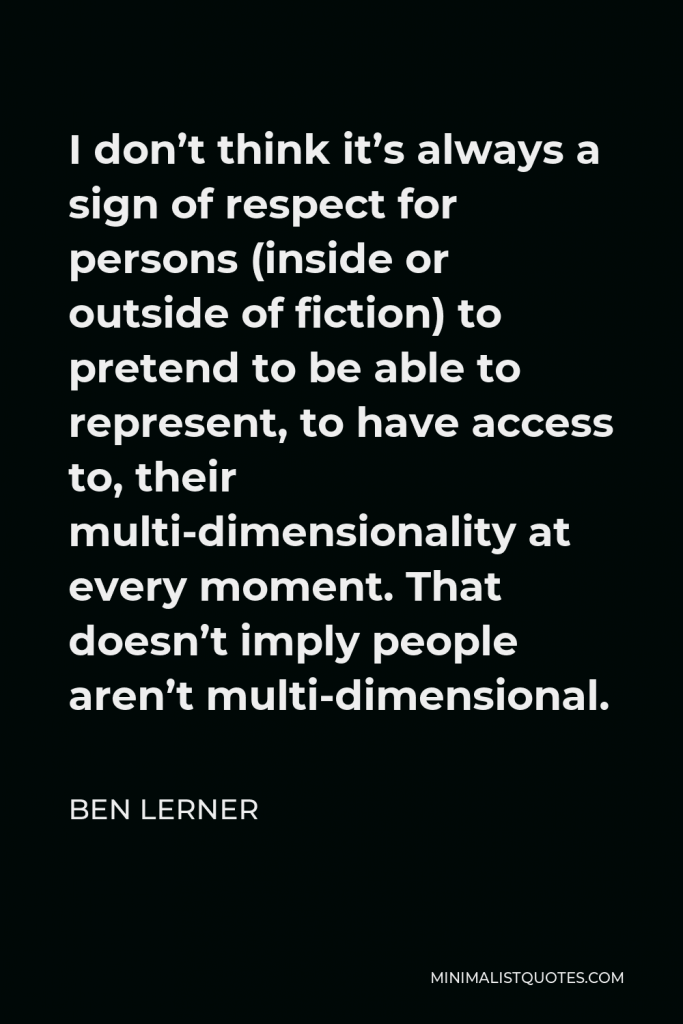Anyway I read more contemporary poetry than contemporary fiction so my mind goes first to a kind of crass “conceptualism” that repeats vanguard gestures of the past minus the politics and historical context.
BEN LERNERFew real people appear in my two novels, actually. “Ari” appears on the edge of this book a couple of times – but on the edge, she’s never in it, even if she’s a determining force from the outside. Everybody in the first book was basically made up, if never from scratch.
More Ben Lerner Quotes
-






-







I remember I had this recurring dream that we were playing a night game and instead of eye black we had mashed up the glowing bodies of fireflies and put that under our eyes. So our faces were glowing – a kind of night vision.
BEN LERNER -







Most of us start from that position of irony now and what I wanted to do – really felt like I had to do if I was going to write another novel – was move towards something like sincerity.
BEN LERNER -






I came to realize that far more important to me than any plot or conventional sense was the sheer directionality I felt while reading prose, the texture of time as it passed, life’s white machine.
BEN LERNER -







I have no interest in artists who are purely affirmative, who’ve made a commercialized fetish of the culture’s stupidity.
BEN LERNER -






I guess when I’m frightened or in pain or maybe very bored I’ve tried to hold myself together by imposing a narrative order on the experience as it happens.
BEN LERNER -






Art has to offer something other than stylized despair.
BEN LERNER -







Experiments with the “as if” of fiction are often more lively in poetry and criticism and other modes of writing than in weak short stories or novels.
BEN LERNER -






I was a violent, bipolar, compulsive liar. I was a real American.
BEN LERNER -







Many of the left thinkers that really matter to me – that formed a big part of my thinking about politics and art – emphasize how capitalism is a totality, how there’s no escape from it, no outside.
BEN LERNER -






Maybe now if you’re not an exhibitionist you’re private. Or maybe it’s just that for a lot of people – sometimes in interesting ways, sometimes in stupid ways – there’s no division between the art object and what surrounds it.
BEN LERNER -






If I was a poet, I had become one because poetry, more intensely than any other practice, could not evade its anachronism and marginality and so constituted a kind of acknowledgment of my own preposterousness, admitting my bad faith in good faith, so to speak.
BEN LERNER -







I didn’t want to write another book about fraudulence.
BEN LERNER -






The transpersonal is more awe-inspiring, more exciting than the thing we confuse it for.
BEN LERNER -







Every relationship can feel saturated by market logic or at best purchased at the price of the immiseration of others.
BEN LERNER -







I don’t think it’s always a sign of respect for persons (inside or outside of fiction) to pretend to be able to represent, to have access to, their multi-dimensionality at every moment. That doesn’t imply people aren’t multi-dimensional.
BEN LERNER







